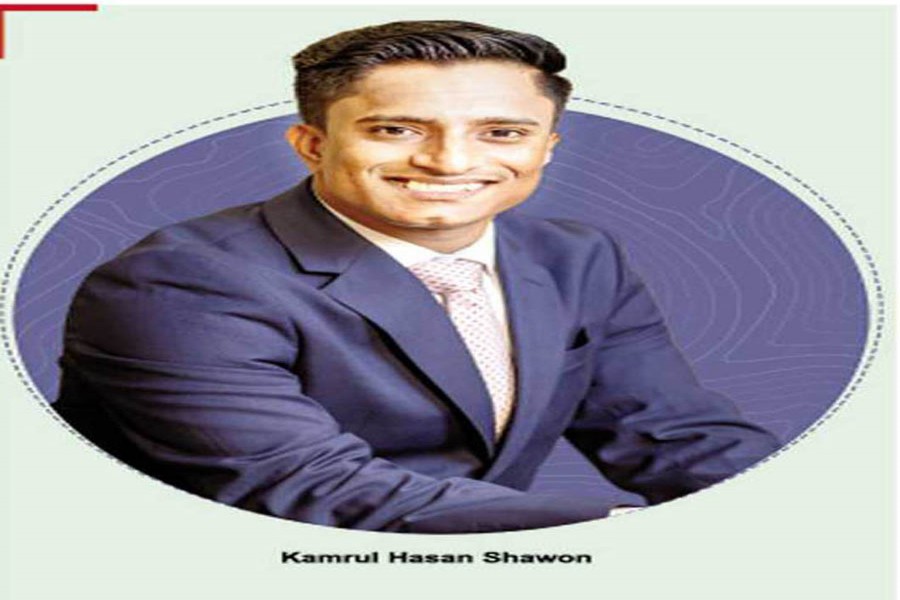The Chevening Scholarship is one of the most coveted and prestigious scholarships in the world. The scholarship first came into being in the year 1983 as the Foreign and Commonwealth Office Awards Scheme (FCOAS), and ever since then, the scholarship has attracted thousands of talented foreigners across the world, including a lot of Bangladeshis.
Kamrul Hasan Shawon is a Chevening scholar of the 2021-22 Cohort who has completed his MSc in Management and Implementation of Development Projects at The University of Manchester. Shawon, a former undergraduate student of Anthropology at Jahangirnagar University, talked about the intricacies that one needs to be mastered in order to get the scholarship.
Talking about the commencement of his journey, he said, "Being chosen for Chevening has been one of the best things that ever happened to me. While the scholarship supported all the costs related to my education and living expenses for my master's degree in the UK, the unique intangible value of this scholarship to me has been the opportunity to connect with the other 'Cheveners' from around the world."
The Foreign, Commonwealth, and Development Office (FCDO) has already opened the call for the Chevening scholarship for this year, with the application deadline approaching the end of next month. And for the aspiring Chevening scholars, Kamrul Hasan has a few pieces of advice as well as insights into the tricks that helped him on a personal level.
He first talked about work experience, which is mandatory for this scholarship, as 2800 hours of work experience is required for this scholarship. This can be any type of experience, ranging from full-time work to purely voluntary work, and this experience can be from before, during, or after someone's undergraduate degree. Speaking about his own work experience, which helped him bag the scholarship, he said, "I co-founded 'Youth For Change Bangladesh', a registered national youth-led organisation, in 2018 during my undergraduate degree. Eventually, I started to work as the Head of Innovation and Development for the organisation and continued in this designation until leaving for the UK. Under this designation, my responsibilities were to develop project proposals, plan and activate campaigns and project activities, etc. I worked as a research assistant at ICDDR,B and also volunteered as a national panel member for Plan International Bangladesh in an international project from 2015 to 2018."
According to him, for the next step, "You will need two well-written reference letters from the people you have worked with-these references can be both academic and professional. However, you can submit the reference letters later in the application process."

He also highlighted the importance of acing the famous 'Four essays for Chevening', where an applicant needs to highlight their leadership capacities, networking skills, motivation to study in the UK, and their plans upon returning to their home country after their studies. He also added,"My advice is to follow the 'STAR' model while writing these essays. You should describe the situations, tasks, actions, and results to highlight your leadership and networking examples and to state your plans."
Furthermore, he said, "It is better to be specific in drawing examples--highlighting one or two specific examples with a clear picture of the task rather than just listing everything without portraying the outcomes achieved. Also, it is essential for a candidate to be wise in choosing their potential degree and universities. The proposed degree should be well related to the experience and plans of the candidate."
According to Kamrul Hasan, one of the common mistakes that Chevening aspirants make is highlighting only their achievements in those essays. For the new applicants, he has emphasised the importance of highlighting their thought patterns in those essays, as they might play an instrumental role in bagging the scholarship.
When it comes to showcasing the curriculum vitae in the essays, Mr Shawon said, "You should not simply list your CV in these essays; instead, you should pick one or two instances and weave them following the STAR model to tell your story."
Finalising the application at the proper time is the cherry on the cake, according to Kamrul Hasan Shawon, as the deadline is already looming. These are some of the benefits of getting a scholarship along with good academic performance.
The writer is a third-year student at the Department of Economics,
University of Dhaka.
[email protected]


